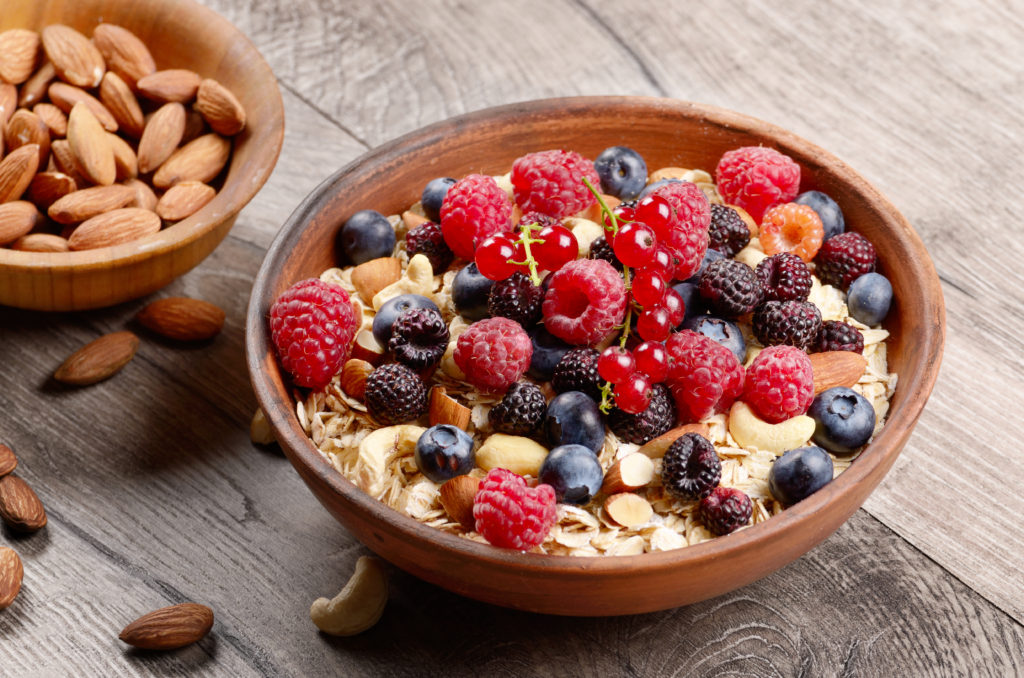WHY AND HOW TO GET MORE ANTIOXIDANTS IN YOUR DIET

Check out this article from CNN about the importance of antioxidants:
“We hear a lot about antioxidants, and we are encouraged to eat foods that are rich in them. But what exactly are they, and why do we need them? As a researcher who examines cellular damage, I will explain the oxidative process and why it’s important to curb it. Free radicals – cellular bad guys – are produced during the oxidative process. Antioxidants work to prevent some of the damage.”
https://www.cnn.com/2016/12/30/health/antioxidants-free-radicals-diet/index.html
Here is the summary of practical recommendations given by the author:
- Avoid high glycemic foods, or foods that are rich in refined carbohydrates and sugars. They are more likely to generate free radicals.
- Limit processed meats such as sausages, bacon and salami. They contain preservatives, which leads to the production of free radicals.
- Limit red meat. It is particularly more vulnerable to oxidation because of its high iron content.
- Don’t reuse cooking fats and oils. Heating fats and oils during cooking oxidizes them, generating free radicals which seep into our foods.
- Limit alcohol. Alcoholic drinks not only are high in calories but also can produce free radicals in the body. Try to limit your drinks to one or two per day.
- Eat foods rich in antioxidants, chemicals that inhibit the oxidation of molecules by neutralizing free radicals, thereby stopping them from causing cellular damage. Antioxidants are found in a variety of plants in the form of vitamins A, C and E, selenium and certain phytonutrients and polyphenols. Cranberries are loaded with them!
- Look for foods with β-carotene, lycopene and lutein, including broccoli flowers, alfalfa sprouts, Brussels sprouts, carrots, collard greens, corn, mango and tomatoes. These foods can be incorporated into several side dishes such as vegetable medleys, casseroles and salads.
- Consider fruit for dessert instead of rich pies and cakes. Apples, cantaloupe, cherries, grapefruit, kiwi, papaya, red grapes, blackberries, raspberries and strawberries are delightful on their own or when mixed to create lovely fruit salads.
- Grab some nuts — always plentiful at the holidays — and other foods rich in vitamin E, such as sweet potatoes.
- Plant metabolites called flavonoids also demonstrate antioxidant functions. Some versatile antioxidant-rich flavonoids include onions, eggplant, lettuce, turnip greens, endives, pears, red wine, parsley, citrus fruits, berries, cherries, plums, legumes, soybeans, milk, cheese, tofu and miso.
- Enjoy antioxidant superfoods, those with high levels of more than one vitamin. These are prunes, plums, raisins, blueberries, cranberries, figs, oranges, pomegranates, sweet red bell peppers, beets, kale, spinach and dark chocolate.
- Try herbal therapy — in your food! Many spices can not only enhance the flavor of our holiday turkeys and hams but also reduce oxidative stress. These include ginger, grape seed extract, ginkgo, rosemary and turmeric.
- Take time for tea. When the evening comes to an end, you can revel in a gentle and soothing cup of warm green tea and be comforted in knowing that the polyphenols in your brew also combat oxidation.
If you are interested in optimizing your intake of antioxidants or seeking any other nutritional guidance, please visit our amazing registered dietitian nutritionist, Claire Allen. Consultations are usually covered by standard commercial health insurance and we can help you figure out your coverage. Please call 224.407.4400 or visit compgihealth.com for more information.
